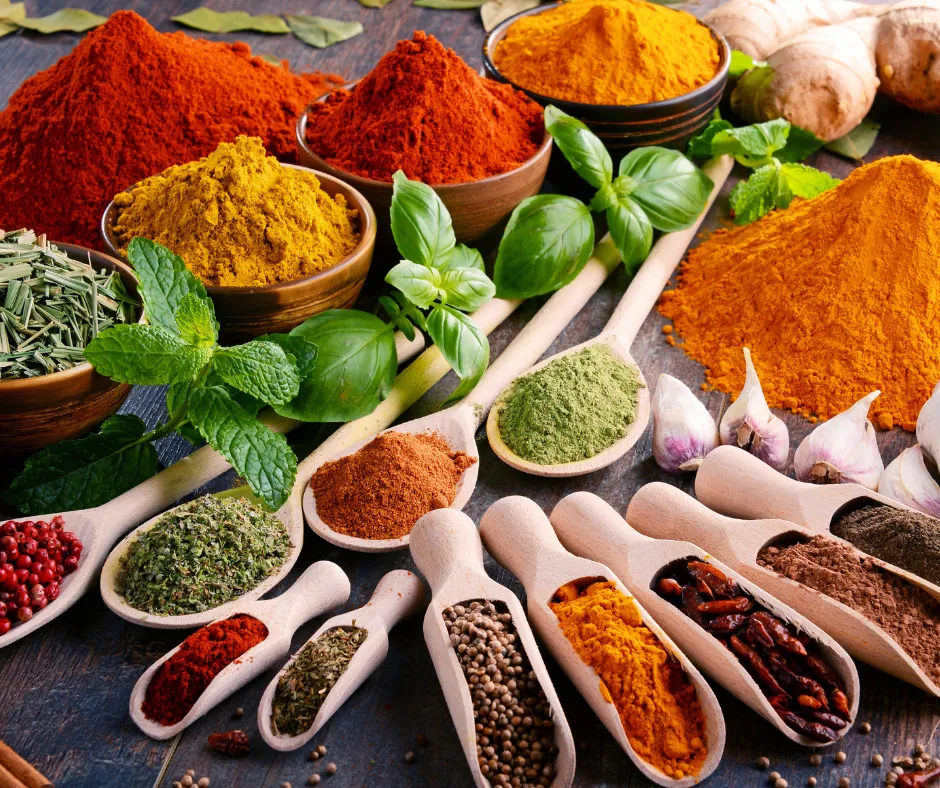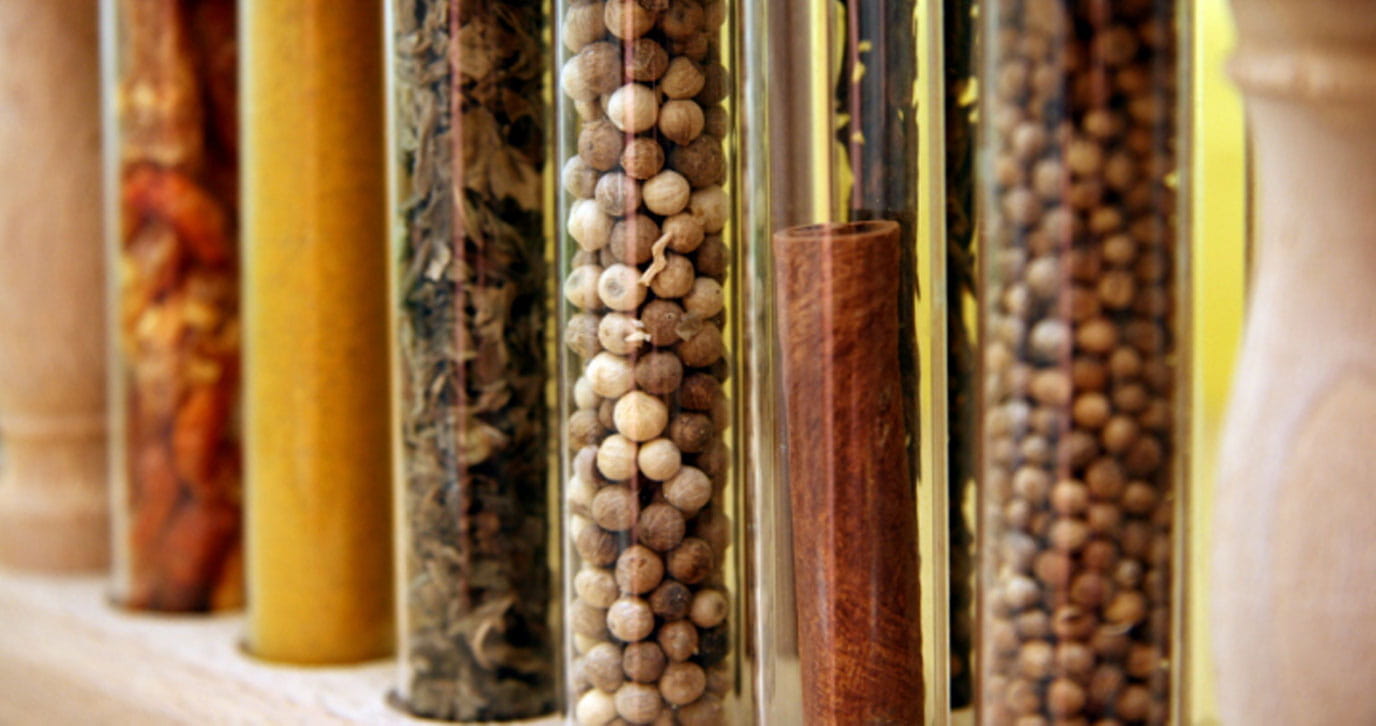January, 2026
Bioenhancer Assessment of Black Pepper with Turmeric on Self-Reported Pain Ratings in Adults: A Randomized, Cross-Over, Clinical TrialHerbs and Spices Improve Blood Pressure in Adults at Risk of Cardiometabolic Diseases
Petersen, K.S., Davis, K.M., Rogers, C.J., Proctor, D.N., West, S.G., Kris-Etherton, P.M.

September, 2021 -- Researchers at Penn State University conducted a study to investigate the effect of adding various doses of spices and herbs to an average American diet on lipids and lipoproteins, and other risk factors for cardiometabolic diseases, in at-risk adults.
Background
Intake of a single meal containing herbs and spices attenuates postprandial lipemia, hyperglycemia, and oxidative stress, and improves endothelial function. There has been limited investigation of the effect of longer-term intake of mixed herbs and spices on risk factors for cardiometabolic diseases.
Objectives
The objective was to assess the effect of an average American diet containing herbs and spices at 0.5 (low-spice diet; LSD), 3.3 (moderate-spice diet; MSD), and 6.6 (high-spice diet; HSD) grams per day at 2100 kcal on lipids and lipoproteins as well as other risk factors for cardiometabolic diseases in at-risk adults.
Methods
A 3-period, randomized, crossover, controlled-feeding study with 71 participants was conducted at the Pennsylvania State University. Each diet was consumed for 4 weeks with a minimum 2-week washout period. Outcomes were assessed at baseline and the end of each diet period.
Results
No between-diet effects were observed for LDL cholesterol, the primary outcome. Between-diet differences were observed for mean 24-hour systolic (P = 0.02) and diastolic (P = 0.005) ambulatory blood pressure. The HSD lowered mean 24-hour systolic blood pressure compared with the MSD (−1.9 mm Hg; 95% CI: −3.6, −0.2 mm Hg; P = 0.02); the difference between the HSD and LSD was not statistically significant (−1.6 mm Hg; 95% CI: −3.3, 0.04 mm Hg; P = 0.058). The HSD lowered mean 24-hour diastolic blood pressure compared with the LSD (−1.5 mm Hg; 95% CI: −2.5, −0.4 mm Hg; P = 0.003). No differences were detected between the LSD and MSD. No between-diet effects were observed for clinic-measured blood pressure, markers of glycemia, or vascular function.
Conclusions
In the context of a suboptimal US-style diet, addition of a relatively high culinary dosage of mixed herbs and spices (6.6 grams per day at 2100 kcal) tended to improve 24-hour blood pressure after 4 weeks, compared with lower dosages (0.5 and 3.3 grams per day at 2100 kcal), in adults at elevated risk of cardiometabolic diseases.
This trial was registered at clinicaltrials.gov as NCT03064932.
Reference
Petersen, K.S., Davis, K.M., Rogers, C.J., Proctor, D.N., West, S.G., Kris-Etherton, P.M. 2021. Herbs and spices at a relatively high culinary dosage improves 24-hour ambulatory blood pressure in adults at risk of cardiometabolic diseases: a randomized, crossover, controlled-feeding study. The American Journal of Clinical Nutrition. 00:1–13.
View Full Text





